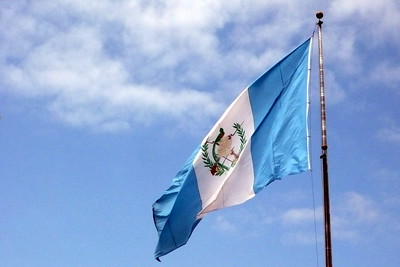On March 8th, Guatemala’s congress passed the Life and Family Protection Law (Law 5272) with an overwhelming majority of 101 to 8 with 51 not present. While the bill still needs to be signed by the president, it would impose some of the harshest punishment for abortion among any Latin American country.
Currently, Guatemala only allows abortions as life-saving measures for mothers, but this new bill will add additional restrictions and penalties. Under Law 5272, women who receive illegal abortions now face up to ten years in prison. Doctors who perform the procedure could face up to 12 years. Even in instances where the procedure would be deemed legal, doctors are required to get another physician’s approval. However, in rural areas, where medical professionals are scarce, finding two available doctors could be nearly impossible, creating an additional obstacle for women in need of the procedure.
Lucrecia Hernandez Mack, a congresswoman who voted against the law stated how “a pregnant woman in danger is going to arrive and the doctor will not be able to perform an abortion, and people are going to die.” In a country already facing alarmingly high rates of child pregnancy, these additional obstacles pose significant risks to young mothers and the country’s overall development. Pregnancy and childbirth complications are the leading cause of death for girls between the ages of 15-19. Even if these mothers survive, they face a higher risk of eclampsia, puerperal endometritis, and systemic infections and their babies are more susceptible to low birth weight, preterm delivery, and severe neonatal conditions.
Alongside the stigma and societal rejection faced by young mothers, adolescent pregnancy often forces girls to drop out of school hurting their future employment opportunities and initiating a cycle of poverty that inhibits future poverty- and inequality-reduction goals.
Many also claim that the new law attacks members of the LGBTQ+ community, as it codifies marriage as being between a man and a woman and bans schools from teaching about sexual diversity. In a state that offers no legal protection for LGBTQ+ people, many fear these new laws would increase the number of hate crimes and discrimination toward the community.
But what makes Guatemala so different from other countries in the region? The law, which was first introduced in 2017, stands as a stark contrast to the recent wave of liberal-oriented bills seen across Central and South America. In late February, Colombia was the latest country to decriminalize abortion. This decision follows similar ones made by Mexico’s Supreme Court and Argentina’s Senate.
Some analysts cite the strategic nature of the move by the deeply unpopular president. Giammattei was at the center of a corruption investigation in September under which he was accused of accepting bribes from Russian businessmen, straining the state’s relationship with the United States. Eric Olson, an expert on Central America at the Seattle International Foundation, explains how this move serves as a way for Giammattei to reach out to conservative congressmen in the United State in an attempt to rebuild his crumbling base. This was further solidified when Giammattei declared Guatemala the pro-life capital of Latin America shortly after the bill was passed.
Despite its initial success, the Life and Family Protection Law was shelved by Congress within a week of its initial passing, signifying a major victory for pro-choice protestors. While the initial decision was alarming in its implication for pro-choice policy in Guatemala, this latest update is once again a step in the right direction as the voices of women are being heard and acknowledged.
Edited by Kimberly Nicholson
Emily is in her third year at McGill University majoring in Political science with minors in social entrepreneurship and international development.

